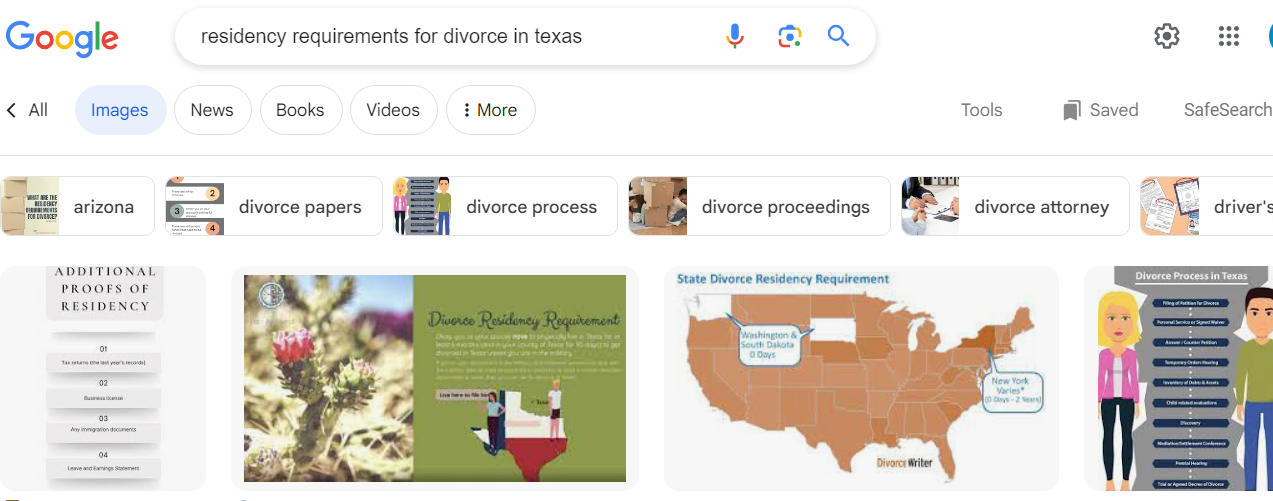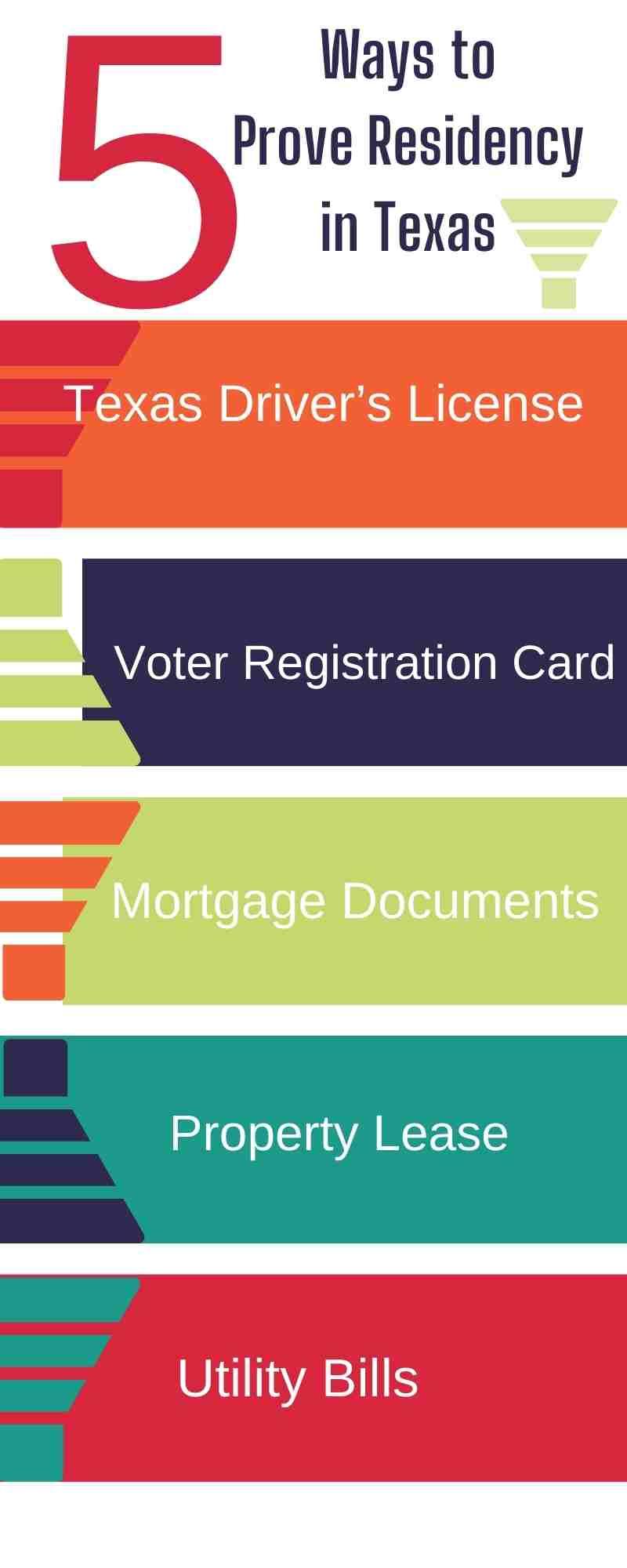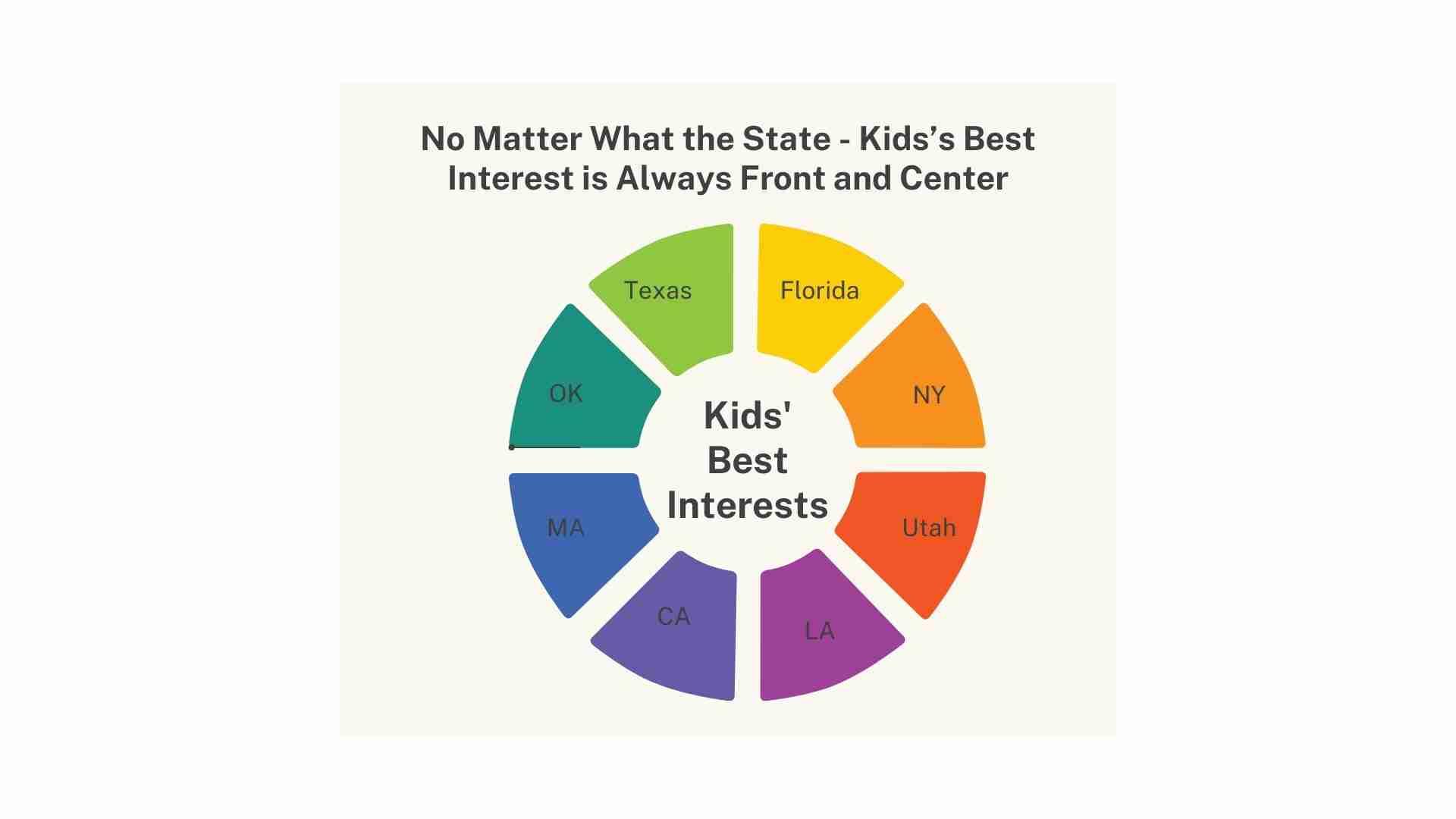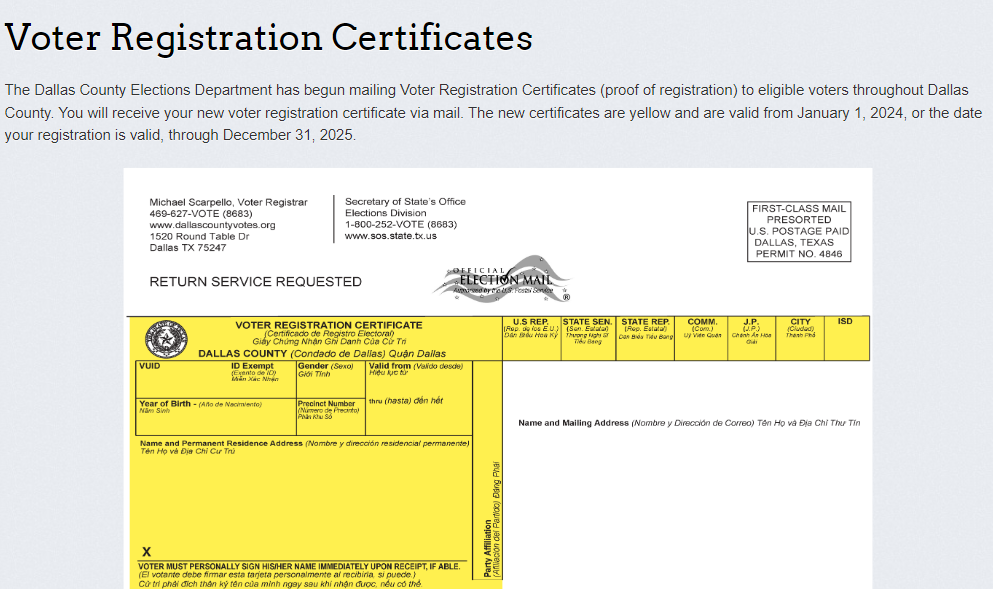
“She went back to Florida to move in with her parents. Took the kids and all.” Roger said to his brother. “I don’t know if she’s gonna go through with it and actually file for divorce but this move seems like more than a bluff. It made me realize that she’s not the only one with the choice.”
“So you’re saying you’re out, you’re gonna file for divorce?” his brother asked.
“I’m ready, I just don’t know if we should do the legal stuff here in Texas or in Florida,” Roger said. ![]()
Deciding to end a marriage is tough, and figuring out where you can legally file for divorce doesn’t make it any easier. If you’re pondering whether you can file for divorce in another state, know that the process hinges on residency requirements that vary from one state to another.
For those in Texas or with Texan ties, understanding how these rules apply is crucial. At Warren & Migliaccio, we help clients navigate the maze of legal standards, particularly when they involve multi-state considerations. You’ll get insight into proving your residency status in Texas and learn about its specific criteria before starting your case.
This post also covers how living across different states affects everything from child custody to property division—vital knowledge if this complex situation applies to you.

Navigating Residency Requirements for Divorce
Residency requirements in a divorce proceeding are the fundamental legal rules determining which state or county has the authority to grant a divorce to a couple. You should understand where you can get your divorce before getting too deep into the process and recognize that it can get complicated.
That’s because every state has its own set of rules, and Texas is no exception. Let’s break down what this means if you’re planning to file in the Lone Star State.

Establishing Residency in Texas for Divorce Proceedings
If you’ve got your sights set on initiating a divorce case in Texas, you’ll need to prove that either you or your spouse has been a bona fide resident here for at least six months. Showing that you are a resident of Texas is more involved than stating where you sleep at night. You should also register to vote and have your voter registration card, get a Texas driver’s license, and become known around town.
Becoming a legal Texan involves some paperwork too. Make sure you have proof of residence like lease agreements or utility bills ready when it’s time to legally split ways because without meeting these residency requirements, Texas courts might refuse to hear your case.
How Residency Affects Your Divorce Case
Texas law could have a significant impact on how things shake out during property settlement discussions—especially since we’re a community property state where what’s yours might be theirs too (and vice versa). Residency also impacts child custody arrangements as it determines which court will have jurisdiction over the kids should there be any post-divorce filing dispute.
In short, proving ‘Texas resident’ status doesn’t only unlock the door to start divorce proceedings but also sets the stage for everything else—from splitting assets to figuring out visitation schedules.

Key Takeaway:
Before you can start a divorce in Texas, make sure you or your spouse has truly settled down here for at least six months. It’s not just about living in the state; it’s about proving it with things like voter registration and driver’s licenses. This step is key because it affects everything from splitting assets to deciding child custody.
Filing for Divorce When Spouses Live in Different States
Imagine the surprise when you realize that ending a marriage can be as complex as starting one, especially when you and your spouse live miles apart. You might wonder if it’s even possible to file for divorce with such distance between you. The truth is, where there’s a will—and a residency requirement—there’s a way.
Jurisdictional Challenges with Out-of-State Spouses
Say one spouse lives in sunny California while the other has settled here in Texas. Filing for divorce gets tricky because both states want to have their say based on where each spouse resides. It’s like having two referees trying to call the same game.
To tackle this legal scrimmage head-on, we need clear ground rules—or jurisdictional requirements—to decide which court takes charge of your case. Now, let’s cut through the legalese: If your soon-to-be ex-files first in their state, they’ve got home-field advantage unless you can prove ties strong enough to shift gears back into your turf.

Meeting Residency Requirements When Living Separately
Each state has its own rules regarding how long spouses must be state residents before letting them legally divorce in their state.
In Texas, if at least one partner claims six months’ worth of Lone Star State sunsets plus 90 days within county lines, they should qualify as a resident. Texas courts, much like others across our nation, expect homework done well ahead of time—and meeting residency is top priority coursework so have that Texas voter registration card and driver’s license ready.
Navigating an interstate breakup demands serious strategy and understanding all these moving parts ensures nobody gets blindsided during these proceedings.
Key Takeaway:
When spouses live in different states, divorce can feel like a legal tug-of-war. But with the right knowledge of residency rules and a strategic approach, you can file successfully—no matter the miles between.
If your partner files first, they may have the upper hand unless you prove stronger ties to your state. And remember: in places like Texas, just six months of residency plus 90 days in-county could be enough to start splitting ways legally.
The Divorce Process Across State Lines
Understanding Subject Matter Jurisdiction in Divorce Cases

Subject matter jurisdiction is all about whether the court has the authority to hear your case, and it hinges on where you and your soon-to-be ex are living. Let’s say one of you is here in Texas while the other’s braving blizzards in New York; residency matters because each state has its own family code that plays by different rules.
For example, a court order from Texas might not mean much if your spouse resides elsewhere unless that Texas court has subject matter jurisdiction over both parties involved.
That’s why it’s important to understand these legal ground rules early on in the process in order to save time and headaches later on during your divorce proceedings.
Navigating Child Custody Orders from Different States
When parents live apart — perhaps one in Texas and the other in Montana — figuring out whose state laws call the shots regarding child custody becomes tricky. This puzzle gets more complicated since different states often have varying laws around child custody and support too.
If there are different orders from different states regarding the same child, there may be a conflict of jurisdiction and enforcement. The Uniform Child Custody Jurisdiction and Enforcement Act (UCCJEA) is a law that has been adopted by 49 states, including Texas, to help resolve interstate custody disputes. The UCCJEA establishes rules for determining which state has the authority to make or modify a custody order, and how to enforce an order from another state.
It’s worth remembering that even though dealing with multiple jurisdictions can feel overwhelming, the guiding principle in all states is keeping the kids’ best interests front-and-center.

Choosing the Right Legal Representation
Finding an experienced divorce lawyer is like searching for a quarterback to lead your team; you need someone who knows the plays, can handle pressure, and understands every inch of the field. When your playing field spans multiple states, that expertise becomes even more crucial.
The Role of a Divorce Lawyer in Interstate Cases
A top-notch family law attorney doesn’t just know the rules; they also understand how local flavors affect legal strategies and how different state laws play together. Say you’re living in Dallas but your soon-to-be ex has moved to another state—your attorney should be well-versed with Texas family code as well as interstate complexities.
It’s about ensuring all bases are covered: from where you can file divorce papers to navigating community property issues if your spouse resides elsewhere. Whether dealing with child support or spousal maintenance claims across borders, having a savvy Texas divorce attorney by your side helps ensure no detail gets overlooked.
Dallas Family Law Expertise for Texas Divorces
To meet residency requirements when filing a divorce case, The Lone Star State wants proof that at least one partner has been living in state for six months or longer—but what happens when one spouse leaves? Well then, you’ll want an experienced hand guiding you through potential pitfalls like jurisdictional challenges and meeting those residency prerequisites. 
Your ideal Dallas-based lawyer will look beyond today’s distress toward tomorrow’s fresh start – divvying up assets fairly and fighting tooth-and-nail over custody orders if needed while helping keep emotional wear-and-tear at bay throughout such trying times.
Key Takeaway:
When dealing with divorce across state lines, pick a lawyer who’s not just familiar with local laws but also the nuances of interstate regulations. They’ll help you tackle everything from filing requirements to property division and ensure no detail is missed, despite where your ex may live.
Financial Considerations During Interstate Divorces
Money matters in a divorce can also get tricky when you and your soon-to-be ex are living in different states. Let’s say one spouse moved to Texas for a fresh start. Well, that Lone Star State has rules about how to split what you’ve got, especially if there’s real estate or businesses involved. The rules could be different in another state.
This gets especially complicated when trying to understand how different states divvy up property during divorces. Community property acquired during marriage could get sliced differently depending on what state you slice it in – some states split everything 50/50, but others weigh factors such as income or fault before dividing up assets.
Jurisdictional Challenges with Out-of- Spouses
The laws of the state where the divorce is filed will dictate the financial outcomes of the case. Choosing where to file can be part of a legal strategy to give one side a financial advantage.. For example, if your spouse files for divorce in another state, they might be filing there because the laws of that state are friendlier to their side.
Meeting Residency Requirements When Living Separately

If both of you agree that it’s time to part ways but already live apart in different states—you likely have separate homes making the residency riddle more complicated. In that case, it’s time to make sure you have your evidence, that driver’s license and voter registration card, as proof of residency so you are ready to file in the state where you live.
Filing across state borders means wrapping your head around how different state laws will impact child custody, spousal support, and terms like ‘community property’ versus ‘equitable distribution.’ It’ll be full of legal challenges and time to find an expert to help you.
You need an attorney who knows this interstate dance well enough not just to step correctly but also lead confidently through each twist and turn so nobody steps on anybody else’s toes financially speaking.
In short: divorcing across state lines? You’ve got homework—and lots of it—to do before hitting those courthouse doors. Your attorney can help you sort through all the factors and decide where to file.
Key Takeaway:
Divorce gets extra tricky across state lines, with money matters heavily influenced by where you file. Residency rules are key; they dictate who can start the process and where. Don’t forget, these laws also shape decisions on property division, spousal support, and child custody.
Frequently Asked Questions
Can I divorce my wife if we live in different states?
You can, but you’ll need to follow the residency rules of the state where you file.
Can I file for divorce in Texas if my spouse lives in another state?
Absolutely. Just make sure you’ve lived in Texas for at least six months before filing.
Which states have no residency requirements for divorce?
No state lets you skip residency entirely; every state has its own set of rules to meet.
What is the 10 year rule for divorce in Texas?
In Texas, a marriage lasting 10 years may influence spousal support and community property division.
Conclusion
Understanding the rules is key. Knowing if you can file for divorce in another state depends on meeting those tricky residency requirements. It’s all about where you’ve planted roots, especially when states like Texas have their own set of criteria.
Planning matters. Dealing with spouses living across state lines adds layers to your legal strategy. Getting a handle on jurisdictional hurdles and residency essentials will pave the way for smoother proceedings.
Finding help is essential. An experienced family law attorney becomes your guide through this interstate maze, offering insights specific to multi-state divorce issues that could impact child custody or property division.
Making informed choices is crucial. Explore whether you can file for divorce in another state and understand the residency rules that might affect your case with our expert legal guidance.

“I think you should take the first step Roger,” his brother suggested. “Maybe if you file here in Texas you’ll have home field advantage. At least call that lawyer and find out.”
“Yes, if she’s dragging me through all this, I may as well get started and get that home field advantage,” Roger said. “I didn’t want to play this game, but if she insists, I’m going to play to win. What’s that lawyer’s name?”
Schedule an Interstate Divorce Consultation in Dallas With Our Firm
Divorce can be stressful and challenging, but you do not have to face it alone. Our team of experienced Dallas family attorneys is ready to provide you with the guidance, support, and legal advocacy you need during these challenging times.
Whether you are seeking to understand residency requirements here in Texas or navigating any interstate divorce related matters, we are here to help you every step of the way. We welcome you to schedule a consultation to discuss your situation and case objectives. We can answer your legal questions and discuss how we can help you move forward. Call our law office at (888) 584-9614 or contact us online to schedule your consultation.
